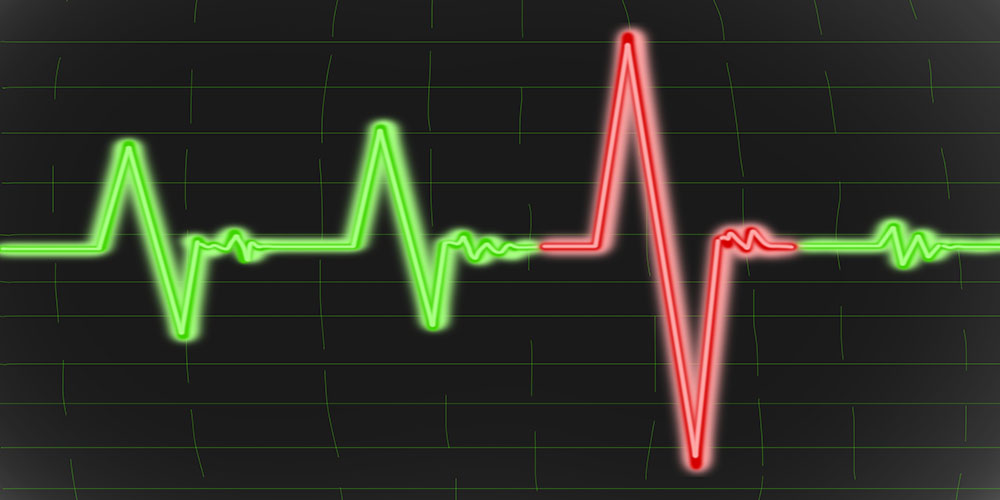18 years ago, I was 41-years-old and pregnant for the first time. My baby, a son, I’d been informed, was due August 15. I’d finished up teaching a session of the independent writing workshops I lead in late July. I was waiting. My husband’s parental leave from his job had started. It was August in Philadelphia and hot. I was big and lumbered around in maternity dresses. For once in my life, my breasts seemed small compared to my stomach. I had my weekly ob-gyn check a couple of days before August 15. That day I saw the woman in the practice. When she examined me, she said she could feel the baby’s hair.
“The head is that close?” I said. She nodded.
“The amniotic fluid is looking a little low,” she noted and told me to come back in a couple of days. “We’ll check on the fluid then. Depending on how it looks, we might want to induce.”
In the time since my workshop session had ended, I’d been making my way down a list of tasks I wanted to have done before the birth. The last was directions to the hospital for my father, who had flown in from California for the birth, in case it became necessary for him to drive there on his own. My mother had died in June, two months previously. She’d had a stroke on an airplane flying east and never woke up. The pilot made an emergency landing in Chicago, and they took my mother to the nearest hospital. Over the next few days, they completed tests that indicated that the stroke had been massive. The neurologists said that even if she were to wake up, it was uncertain if she’d even be able to swallow. My father and I decided to withdraw life support. It was not really a question; she had made her wishes should such a situation arise clear. The only hesitation my father had was if we’d be robbing her of a chance to see her grandson. But that seemed highly unlikely. She died 24 hours later. My father flew to Philadelphia and stayed with us for a week. Then he returned to California to pick up the pieces of his life.
Though I had permission from my ob-gyn, I did not end up flying to Chicago. Our family friends agreed: Don’t take the risk; it would compound the tragedy if anything happened to that baby. I asked myself if I had anything I needed to say to my mother. Though she remained in a coma, my dad talked and read to her, as if she could hear. I decided that I didn’t, so I stayed in Philadelphia. At my weekly appointment, I’d sobbed in the office of the woman ob-gyn.
Now, two months later, sitting at my desk, I finished the directions for my father. It had taken me longer than I’d expected. I didn’t exactly feel ill, but I didn’t feel right either. I had to force myself to look at the screen, to type the words. I felt groggy. Slow. Nothing like what I’d expected to feel, so weirdly enough, I didn’t tie it to the pregnancy; I didn’t even think of contractions.
Because he was now off work, my husband went to the next ob-gyn appointment with me. We brought along my father, in case they did decide to induce. The office was in the CurtisBuilding, which has a large Maxfield Parrish mural called “The Dream Garden” in the lobby. Somehow that seemed appropriate: This was a dream child. I hadn’t been sure I wanted children until I turned 40, and then it was like I was running as fast as I could to get through a door before it closed on me.
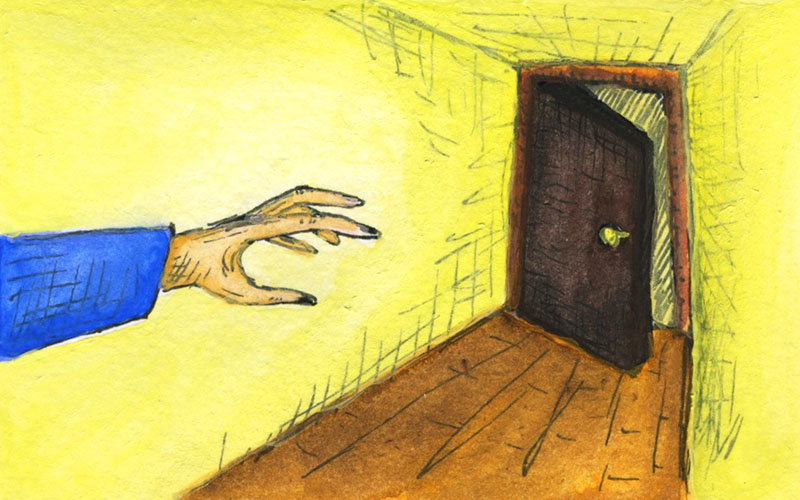
Upstairs, at the appointment, it was as the doctor had predicted a couple of days earlier: The amniotic fluid was quite low; they’d like to send me over to the hospital to have me induced. The three of us got into the car and drove over the few blocks to Pennsylvania Hospital. Once there, I was ushered into a room of large chairs that looked like La-Z-Boy recliners, only they were vinyl and had oversize padded arms. They put an automatic blood pressure cuff on me that squeezed my arm at intervals. I don’t remember if my husband was with me in that room, just the blood pressure cuff tightening and loosening, and the screen to my right that showed a rising and falling line. I stared at the screen for a while before it dawned on me that the rising and falling lines might be my contractions. It seemed the most likely explanation. I’d expected contractions to feel different, though, more obvious. I just felt tired and lousy, like I had the flu.
I waited for what seemed like a long time in the room. Finally, they came back and told me that they’d like to induce, but that all the beds were taken. I should call early the next morning, around six. If they had a bed then, I should come in. My husband drove us back to our house. That night, I fell asleep on the rug watching O Brother, Where Art Thou?: the water rising as the dam fills, and Holly Hunter and George Clooney’s desk with the ring floating up and away.
The next morning I called at 6:00 a.m. as instructed, and they told me to come on in. My husband, my father, and I got in the car and drove into the city. My son was born at 9:00 p.m.that evening.
The reason I’m thinking about this is that it occurs to me there are similarities between the way I felt then, awaiting my son’s arrival, and now, as I am anticipating dropping him off at college.
The early stages of labor weren’t what I’d expected or even recognized as such. Same with the emotional process of releasing him into the world. I say emotional, but it feels physical too. I feel the strain across the bottom of my stomach. Up in my head, I feel a kind of bewilderment.
Honestly, I didn’t expect this. I’d had friends and students transition to “the empty nest,” and I’d always figured this would be a smooth and natural process for me. I’d come to motherhood late, after all, and it was not the only role I played. I led my workshops, of course; I was a writer. I also had recently taken up the cello again, which I played as a child and adolescent, and was playing in a community orchestra. I’d even gone to music camp for adults earlier that summer. I had a lot going on in my life. I was looking forward to not having to pry my son from his bed in the morning, not having to drive him to school, not having to check PowerSchool to keep abreast of his school assignments, not having to remind him to take medicine, take out the garbage, or complete his homework. I would enjoy not lying awake waiting for him to come in on weekend nights. I would enjoy having more uninterrupted time with my husband.
All this is true, and yet . . . I expected to feel joy during the graduation festivities, for myself as well as him to be released from the strictures of high school. But the joy was shadowed by a growing disquiet and anxiety.
There’s plenty to worry about when one has a new baby. After all, none of us can remember our earliest years. The sheer terror of being responsible for a human’s life other than one’s own takes over. After my son was born, I remember thinking, I’ll never fall asleep on the couch again. Constant vigilance was demanded. After my husband returned to work, I couldn’t even figure out how to take a shower. In the aftermath of the birth, my feet swelled up. I was supposed to soak in a sitz bath several times a day. I couldn’t figure out how to do this. For the first year, especially, as soon as I got my equilibrium, he’d be on to a new stage, and everything would change.
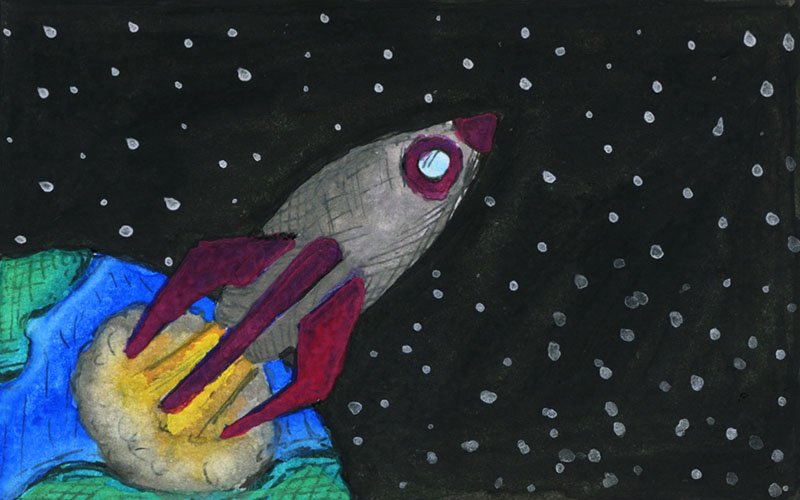
In those years, though, one’s responsibility is clear. Now, as I prepare to launch a child into the bigger world, the limits of my responsibility are what’s terrifying. Here is this life I had a hand in creating. I am now handing him over to himself, the kid who can barely remember to take his medicine, who may take all kinds of risks with himself that I cannot prevent. I didn’t realize what a sense of ownership I would have — that I am now being forced to acknowledge and relinquish.
Don’t worry so much, Mom, my son says, echoing every child ever born, but worry is exactly what I do, a similar free-floating anxiety I felt when he was born.
Who was it who said that when you have a child, your heart is walking around in another — younger, more ignorant and foolish — person’s body? How can that be in any way acceptable? It isn’t, but it has to be.
If they put me in one of those La-Z-Boy-type chairs and hooked me up to a machine, to my heart, or perhaps more accurately, my gut, that deep-down lining where anxiety and uncertainty live, the peaks and valleys would be moving up and down. Fear, momentary release, then fear seizing again, the contractions of expelling the soul of the body that was already expelled 18 years ago into the world.
I would not be the first parent to recognize this; this is, of course, the whole point, the logical outcome of the exercise that started back on a November evening in our bedroom. In seeking and taking on parenthood, this is what all is leading to. And how exciting, to see this growing young man about to figure out who he is away from home and from the identities that have been provided to him and have held him in place until now. I’m dismayed at the retrograde voice that pokes up: Where, in all this, is the little boy that I remember?
My husband mourns the days of my son’s playing baseball, those many hours of watching him on the field, that I’d feared would be boring but turned out to be riveting. How we loved to watch his kinetic intelligence, his physical grace, his studying the field, the mental game so clear in his movements. How we never got tired of seeing that, his body so at home in the world.
I think of our hikes and camping and canoeing trips. I know my son is thinking of them too. When we took a two-week vacation in the Adirondacks in July, he kept saying how great it was to be out there.
He is far from home, nearly across the country, to a place he chose in good measure for its physical beauty, for its natural environment. Also for the opportunity it offers to study ecology and environmental biology. To study natural life in a beautiful part of the world, in an ecology very different from that of the East Coast outwash plain where we live.
He went west, ascending with the tilt of the continent. He went into the mountains, to the foothills of the Rockies. It is a journey that makes sense for who he has been as a boy and who he may become as a young man. It is a journey he selected, embracing the adventure of a large campus away from home.
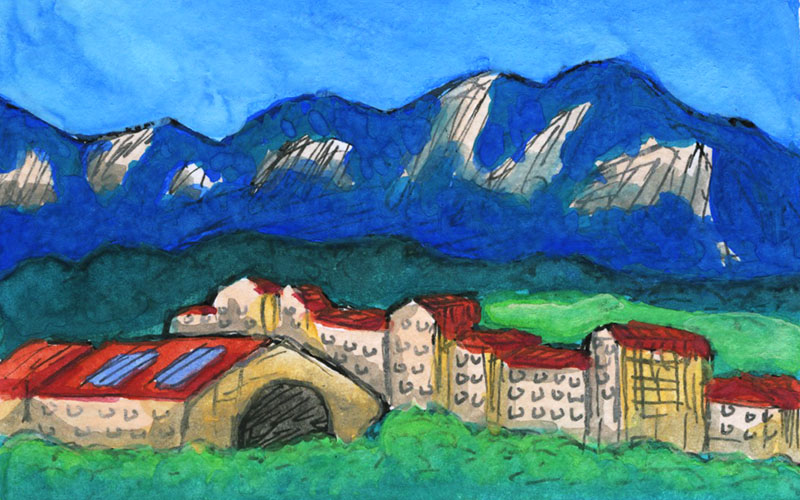
When I was pregnant with him, it was an adventure. In those days before his birth, I was impatient to get on with things; I was tired of waiting. I put it this way then: Imagine that you are going to run a marathon. You’re signed up, only you don’t know when you’ll have to do it. The call can come any time, day or night. You’re just waiting. Years later, I’m again awaiting that call.
I feel the same impatience now; I want to fast-forward through what I know will be the last hectic days of getting him ready to go. Of his resisting necessary tasks out of anxiety, a reluctance to think about things that will trigger it. Of his wanting to spend every last possible moment with his friends, as if they can keep him suspended in this time forever, because he’s not sure when he’ll see them again. I want to fast-forward through my panic, through the loading-up of the car.
He is attending a pre-orientation outdoor trip sponsored by the school, so the plan is to put him on a plane in the morning, from which he will take a shuttle to campus and connect with his group, while my husband and I start the 1,749-mile drive with his stuff. We will meet four days later in a parking lot and move him into his dorm.
I want to be in the car driving with my husband already. For some reason, I think I’ll feel better when I’m with him, when it’s just the two of us, that somehow the feeling in my stomach will be quelled and soothed by the buffering of those three days in the car, and even if not, I’ll at least feel I’m not alone.
Fast-forwarding is not an option, though. Nor advisable. As the joke goes, not out but through.
The same way the contractions that I didn’t recognize as contractions, just feeling lousy and off, were necessary to prepare for the task of heaving him out of the womb, the rising and falling of my anxiety now is preparation for the moment we will stand in his room and hug him goodbye.
After my parents dropped me off at college, in August of 1978, my father told me that, walking back to the car, he’d paused for a moment underneath the archway between two old, stately, collegiate, gothic dorms. A member of the housekeeping staff was passing by and said to him, “Don’t worry, she’ll be all right.” When my father told this story, he added, “I hadn’t realized that I looked that transparent.”
When my father first told this story, I couldn’t fathom the full emotional import. As a parent, one of the biggest revelations to me has been how oblivious I was to my parents’ emotions — at least regarding me. Yes, I knew that the fall of my freshman year, my professor father started bringing our dog to class with him, and that after visiting on Parents’ Weekend, he started building a replica of one of the bike sheds on campus, intended as a woodshed on our property. It was obvious to me that these actions were connected to my leaving. I accepted this without thinking much of it. I was absorbed in my own journey, as I should have been.
Now that I have an emotional understanding of what my parents went through, I would like to ask them, how did they do it, how did they manage? They are both now deceased, but even if they were alive, I doubt they could tell me. It’s a hard journey to articulate.
In some ways, the journey a parent makes after a child leaves home is like the journey a child makes when she or he leaves home. The same questions torn open: Who am I, what is my place? Because even though I have played and play roles in addition to that of Mom, that role has become part of my identity. A bigger part than I may always want to acknowledge. I’m still Mom, of course, but in a different way. I’m Mom, but at a new distance. My heart is going to be walking around 2,000 miles from where I am.
Who will this person be, who has a college student/young adult out in the world? She will lead writing workshops, work with private students, play the cello, and write. But who will she be?
I realize that what I thought would simply take care of itself is going to need more, more intentionality. In another year, I’ll turn 60. Who is this 60-year-old woman, with migraine and reflux, uterine prolapse and a very small aneurysm in her aorta? Some of that answer is in the young man in whom my heart is embedded. I want him to take good care of himself — and of me. Not to cause that aneurysm to enlarge or burst.
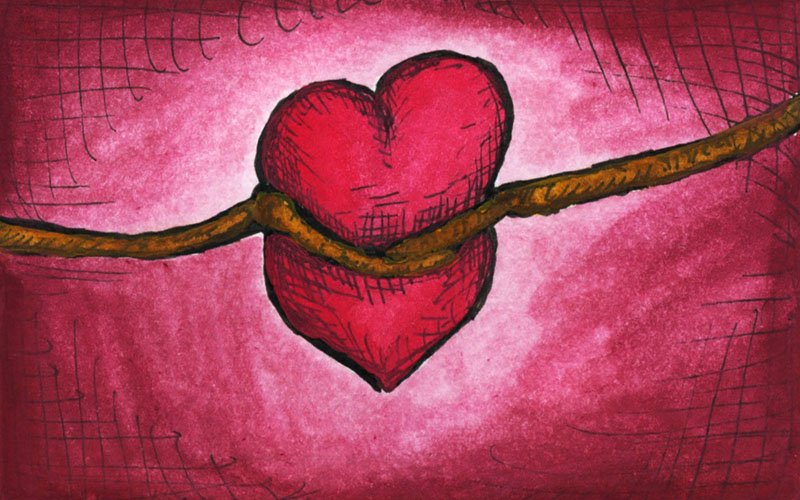
Is it true, then, that though separated, we still make this journey together? I don’t want my anxieties or fear to trouble his water, to keep him from fully inhabiting his own life, as my parents allowed me to inhabit mine.
•
My cardiologist, when I told him my son’s choice of college, recommended that I bring along lots of tissues for the drive home.
“You know he’s not coming back, right?” he said.
“Yes, I know that’s a strong possibility,” I replied.
Indeed, when we glimpsed the first outline of the Rockies from the east Colorado plain 50 miles out of Denver, and when we looked up at the Flatirons visible from any location in Boulder and walked through the campus of rose-colored stone buildings and red roofs, we understood why he had fallen in love with the place, and why he might well want to stay.
I did not cry on the three-day journey home, along I-70 through eastern Colorado, across the plain of western Kansas and the Flint Hills, through the beltline of the country, Missouri, Illinois, Indiana, Ohio, and finally across nearly the whole of our own state, Pennsylvania.
I did not cry when we returned to our house, or even when I went up to his room to change the sheets.
I did not cry the first week, or the second.
I have been regularly checking the Facebook CU Class of 2023 and CU Parents pages, where I’ve read posts from parents who report they are crying and missing their “DD” (Dear Daughter) or “DS” (Dear Son), along with useful information and comments on every topic—even those that have little direct connection to my son.
I have been texting my son about some leftover logistical matters and pictures of our dog. I throw out questions.
He answers most of them, ignoring the ones that would require greater explanation. He mostly sticks to the facts: My recitation leader for geography is a Russian grad student, Bio is probably my hardest class. I take it as a good sign that he is not saying, “This is bad,” “This is good,” but reserving judgment and taking it all in.
I didn’t cry when we FaceTimed over the Labor Day weekend. Since his roommate was in their room, he took the call outside, and we watched the clouds float by in the brilliantly clear Colorado sun in back of his head.
I have not cried yet, though I cry easily. It seems that crying, even to my body, is an overly simple, straightforward response. I am too absorbed to cry. Though this might seem melodramatic, maybe too shell-shocked. The responsibilities in my own life rear up at me; I step toward them, but I am moving in slow motion, as if underwater.
When people ask how he’s doing, and how I’m doing, I say, “So far, so good.” There is lots to be nervous about, and he is still in deer-in-the-headlights territory. From our FaceTime conversation, I sense that he is trying to figure out how to reach out to others and make friends beyond the guys on his hall and his roommate (who comes from Denver) and his friends.
He’s doing it, though, immersed in the process. As am I.
Today he stopped by a study abroad fair and sent me a link to the School for Field Studies, which offers programs in Australia and Turks and Caicos Islands in the Caribbean that focus on his longtime interest in marine ecology.
I remember the bouts of anxiety in my first semester — what a friend termed “existential terror in your first year away at college.” I think we are both a little numb and yet super-attuned at the same time. We are observing ourselves, putting one foot in front of the other, wading into the next phase of our lives. •
